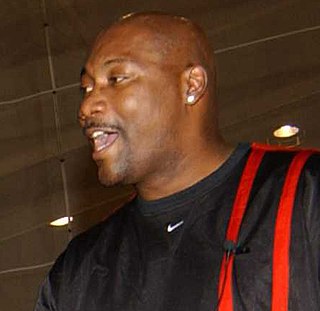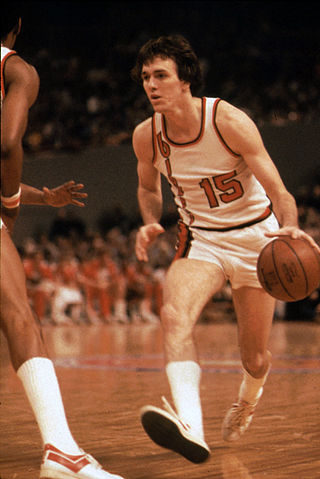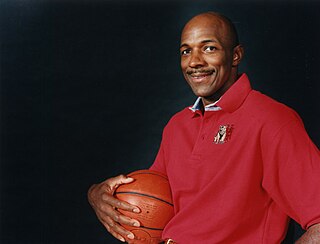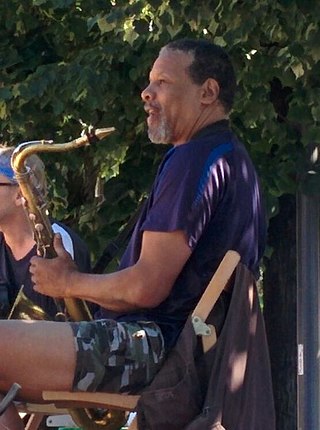
The Portland Trail Blazers are an American professional basketball team based in Portland, Oregon. The Trail Blazers compete in the National Basketball Association (NBA) as a member of the Northwest Division of the Western Conference. The team played its home games in the Memorial Coliseum before moving to Moda Center in 1995. The franchise entered the league as an expansion team in 1970, and has enjoyed a strong following: from 1977 through 1995, the team sold out 814 consecutive home games, the longest such streak in American major professional sports at the time, and which has only since been surpassed by the Boston Red Sox and the Dallas Mavericks. The Trail Blazers are the only NBA team based in the Pacific Northwest, after the Vancouver Grizzlies relocated to Memphis and became the Memphis Grizzlies in 2001 and the Seattle SuperSonics relocated to Oklahoma City and became the Oklahoma City Thunder in 2008.

Moda Center, formerly known as the Rose Garden, is the primary indoor sports arena in Portland, Oregon, United States. It is used for basketball, rodeos, circuses, conventions, ice shows, concerts, and dramatic productions. The arena has a capacity of 20,500 spectators when configured for basketball. It is equipped with state-of-the-art acoustics and other amenities.

Christen Guilford Dudley is an American former professional basketball player and politician. He played 886 games across 16 seasons in the NBA for the Cleveland Cavaliers, New Jersey Nets, Portland Trail Blazers, New York Knicks, and Phoenix Suns. A journeyman center, he was known primarily for his defensive skill as a rebounder and shot blocker. In his second season with the Knicks, he played in the 1999 NBA Finals.
Dwight Jaynes is a journalist and sportswriter in Portland, Oregon. He was a sports columnist with The Oregonian newspaper for several years. In 2001, he left to become president and write a column in the fledgling Portland Tribune and to do a daily radio show for KPAM, a talk radio station owned by the same company as the Tribune. He left his radio role and worked full-time for the Tribune, serving as the paper's editor and sports columnist until leaving at the end of July 2008.

Jerome Kersey was an American professional basketball player in the National Basketball Association (NBA). He played for the Portland Trail Blazers (1984–1995), Golden State Warriors (1995–96), Los Angeles Lakers (1996–97), Seattle SuperSonics (1997–98), San Antonio Spurs (1998–2000), and Milwaukee Bucks (2000–01). Kersey won an NBA championship with the Spurs in 1999.

Clifford Ralph Robinson was an American professional basketball player who played 18 seasons in the National Basketball Association (NBA). Selected in the second round of the 1989 NBA draft, he played the first eight seasons of his career with the Portland Trail Blazers, followed by stints with the Phoenix Suns, Detroit Pistons, Golden State Warriors, and New Jersey Nets. Robinson received the NBA Sixth Man of the Year Award in 1993 and was selected as an NBA All-Star in 1994. He played college basketball for the UConn Huskies.
Kevin Jerome Duckworth was an American professional basketball player who played as center in the National Basketball Association (NBA). A native of Illinois, he played college basketball at Eastern Illinois University before being drafted in 1986 in the second round by the San Antonio Spurs. Before completing his rookie season with the Spurs, he was traded to the Portland Trail Blazers where he spent most of his six seasons and was named the NBA's Most Improved Player and a two-time All-Star. After playing with three more teams he retired in 1997 and returned to Oregon where he would later work for the Trail Blazers' organization.

Maurice Lucas was an American professional basketball player who played in the American Basketball Association (ABA) and the National Basketball Association (NBA). He was a four-time NBA All-Star and won an NBA championship with the Portland Trail Blazers in 1977. He was named to the ABA All-Time Team.

Michael Harold Schuler was an American basketball coach in both college and the National Basketball Association (NBA). He was the head coach of the Portland Trail Blazers and Los Angeles Clippers from 1986 to 1992 and compiled a win–loss record of 179–159. He won the NBA Coach of the Year Award in 1987, becoming the second rookie coach to be conferred the honor.

Stuart Kirk Inman was an American basketball player, coach and executive. He was selected in the sixth round of the 1950 NBA draft from San Jose State University by the Chicago Stags; however, he did not play in the NBA.
The Portland Trail Blazers are a professional basketball team in the Western Conference of the National Basketball Association. The Trail Blazers are currently celebrating their 50th NBA season. The franchise owner is Jody Allen, who assumed ownership upon the death of her brother Microsoft co-founder and Vulcan Inc. chairman Paul Allen, in 2018.

Larry Nelson Steele is a former professional basketball player, best known for being on the Portland Trail Blazers team that won the 1977 NBA Finals.
Harry Glickman was an American journalist, promoter, and sports executive. He was one of the founders of the Portland Trail Blazers, and the team's president from 1987 to 1994.

The Rose Garden bankruptcy occurred in 2004 when the Rose Garden in Portland, Oregon was the subject and primary asset in a bankruptcy filing, shifting ownership of the arena from billionaire Paul Allen to a consortium of creditors.
The 1971–72 Portland Trail Blazers season was the second season of the Portland Trail Blazers in the National Basketball Association (NBA). Geoff Petrie missed 22 games due to injury. Petrie who averaged 24.8 points per game in his rookie season would drop nearly 6 points per game as the Blazers finished with an NBA worst record of 18–64. One of the highlights of the season was Sidney Wicks. He would win the Rookie of the Year with a team best 24.5 points per game.

The Portland Trail Blazers are an American professional basketball team based in Portland, Oregon. The Trail Blazers play in the Northwest Division of the Western Conference in the National Basketball Association (NBA). The franchise entered the NBA in 1970, and is one of two major league franchise in Oregon. The Trail Blazers sold out 814 consecutive home games from 1977 through 1995, the second longest such streak for American professional sports teams which was broken July 9, 2011, by the Dayton Dragons. The team has played their home games at the Moda Center, since the 1995–96 NBA season. The Trail Blazers are owned by the Paul G. Allen Trust chaired by Jody Allen, since the passing of owner Paul Allen in 2018. Since the team joined the NBA in 1970, it has won one NBA championship, three conference championships, six division championships, and has appeared in the NBA playoffs 34 times.

Charlie Yelverton is a retired American professional basketball player. At a height of 1.88 m tall, he played as shooting guard-small forward. He is a member of the New York State Basketball Hall of Fame.

Shaler Halimon Jr. was an American basketball player. He played five seasons in the National Basketball Association (NBA) and American Basketball Association (ABA).
There are several well-known and commonly used nicknames referring to Portland, Oregon.












